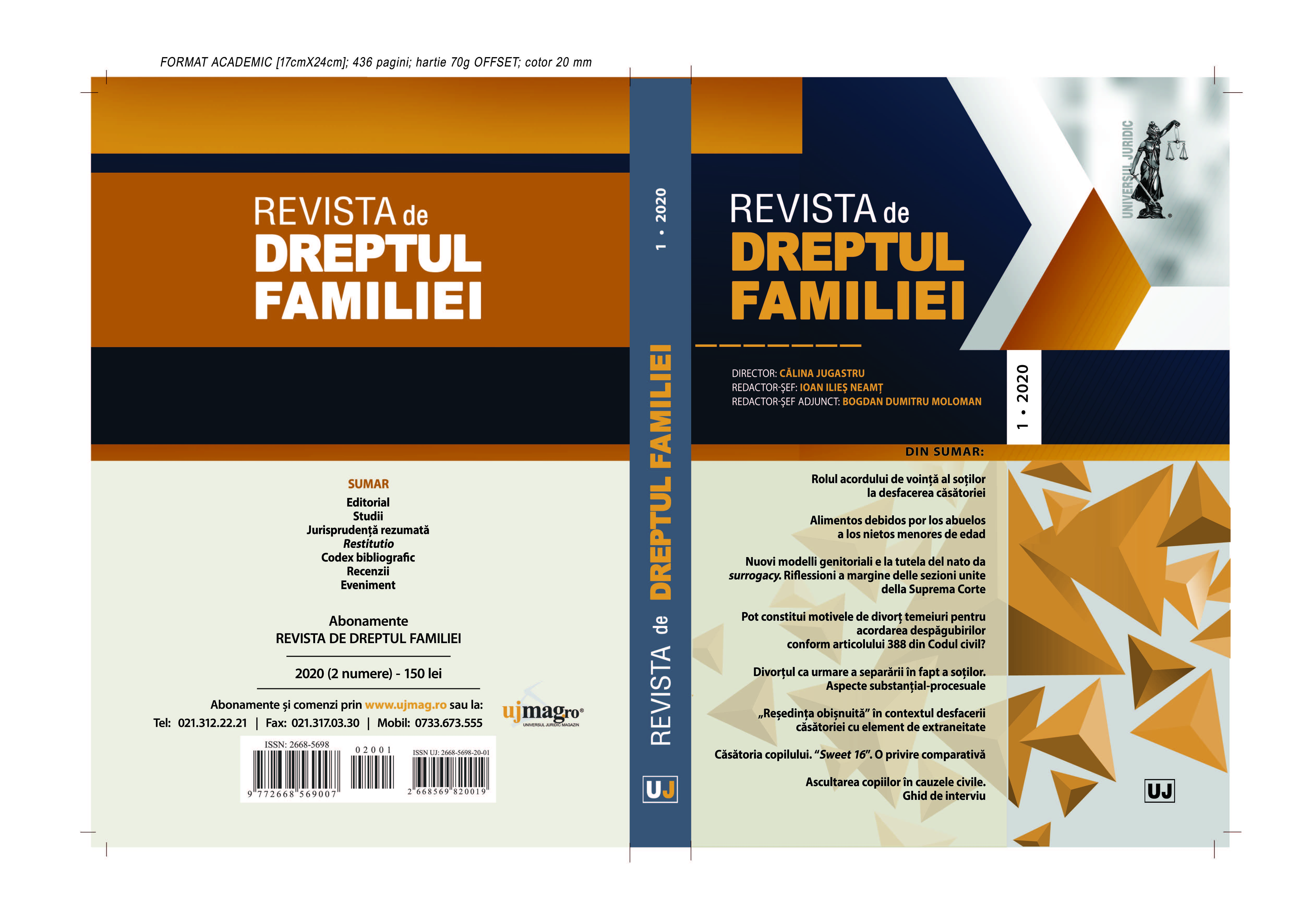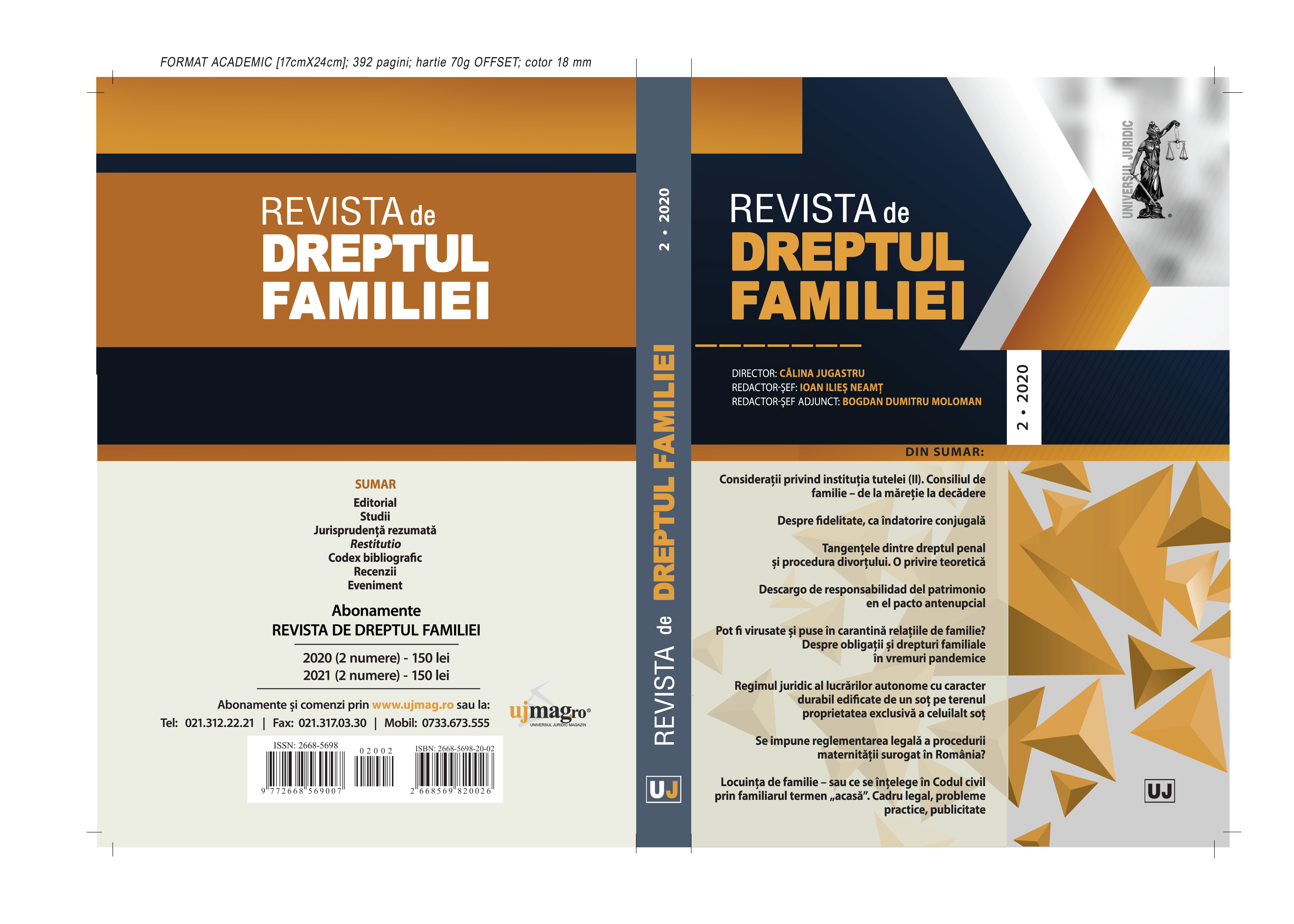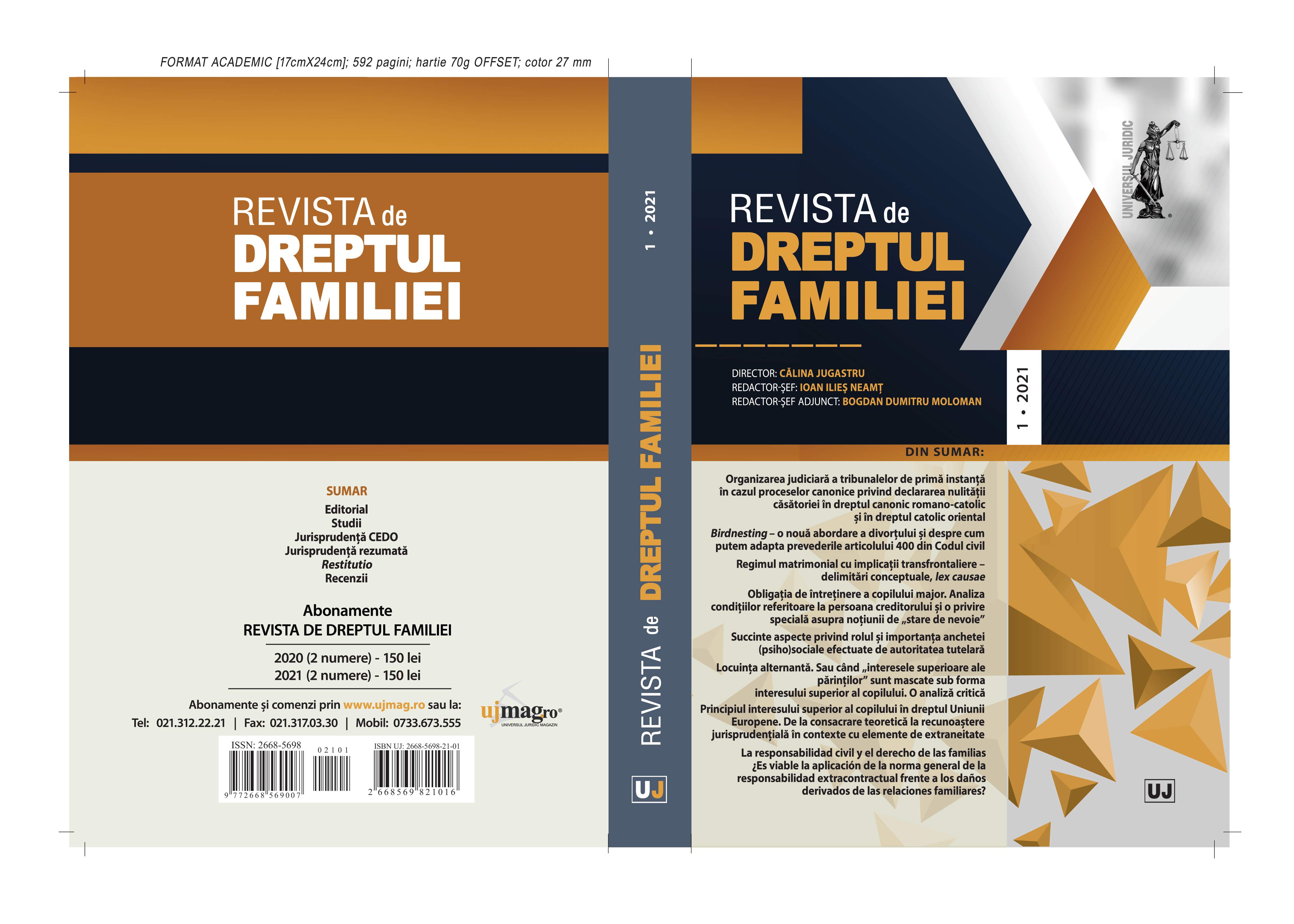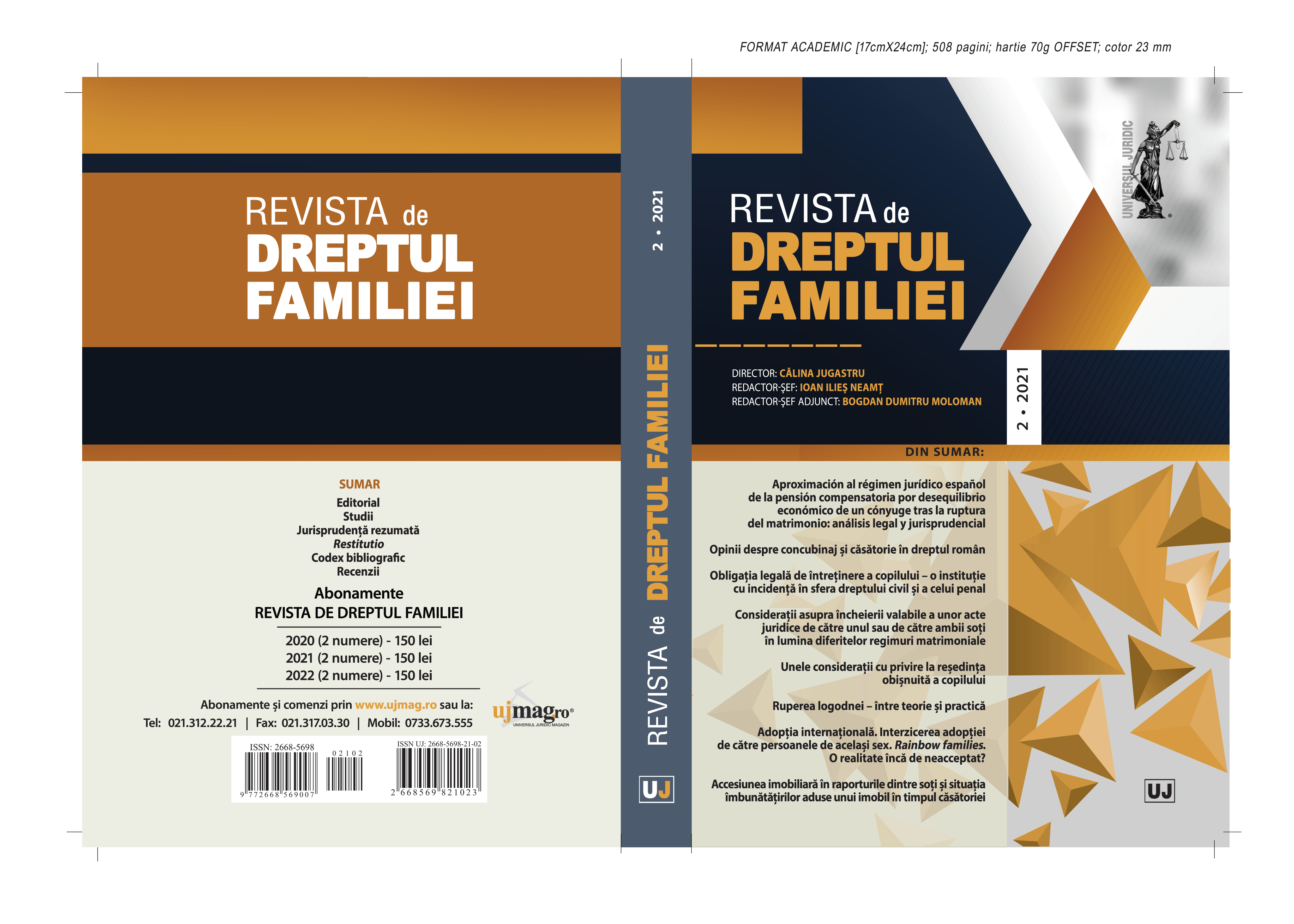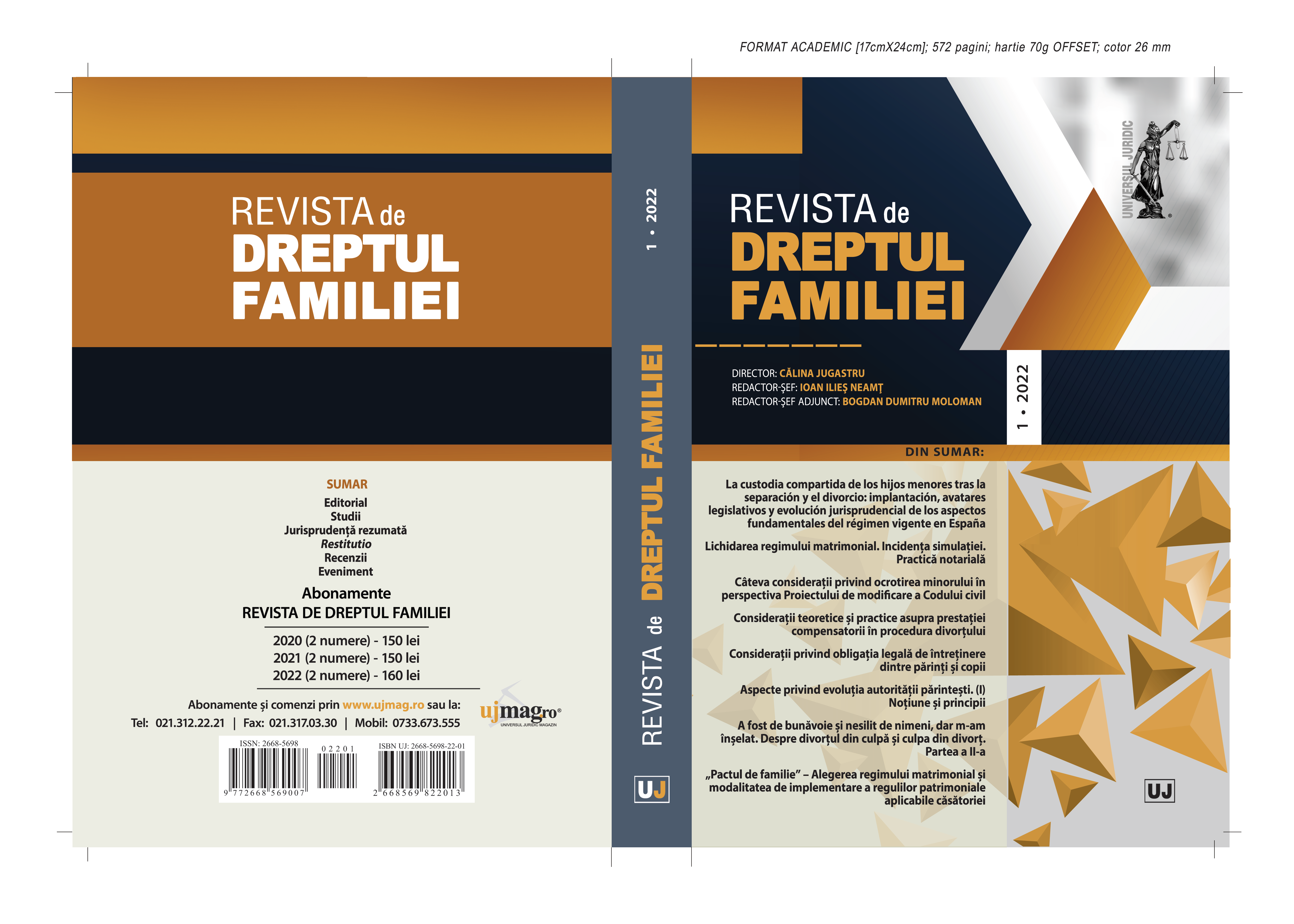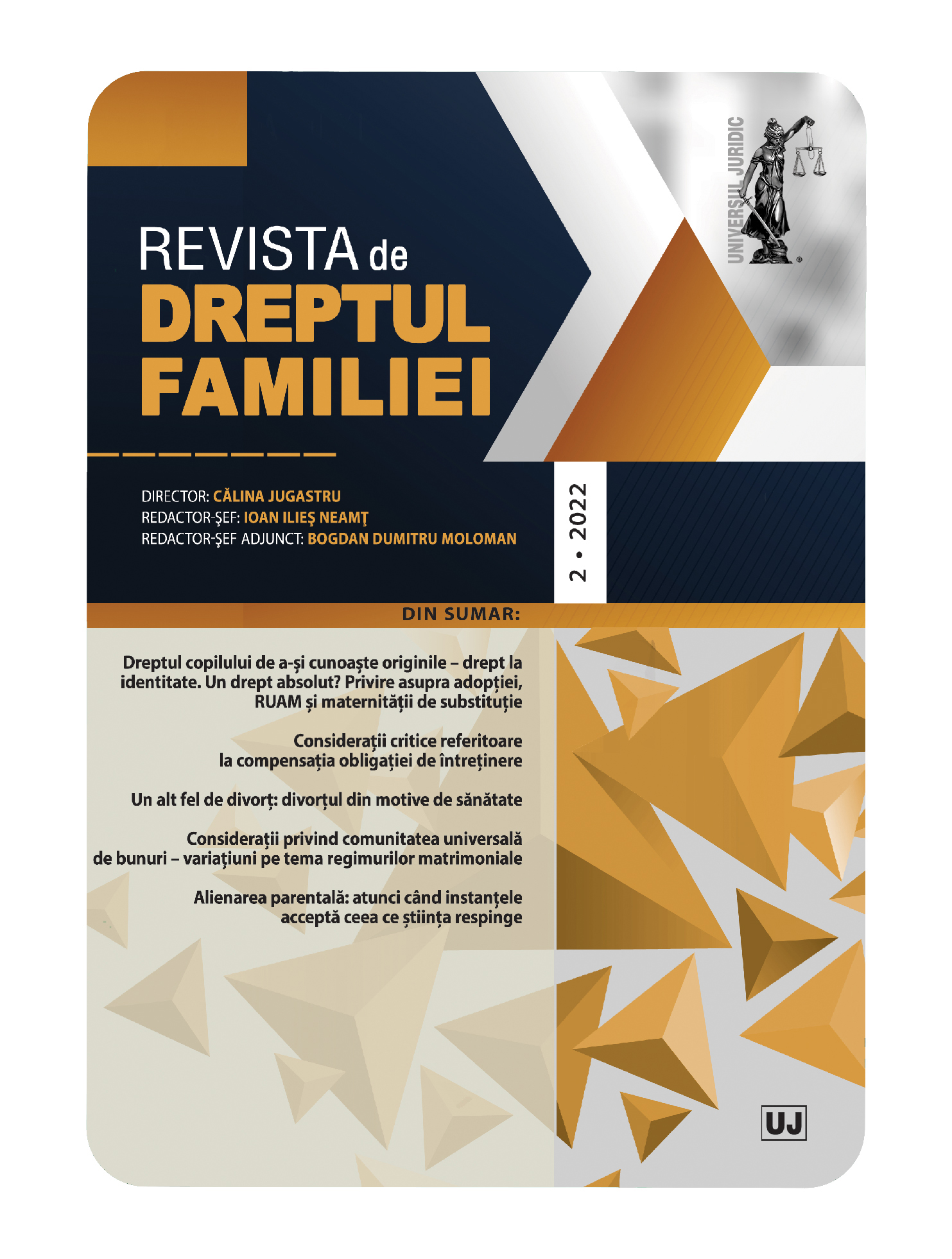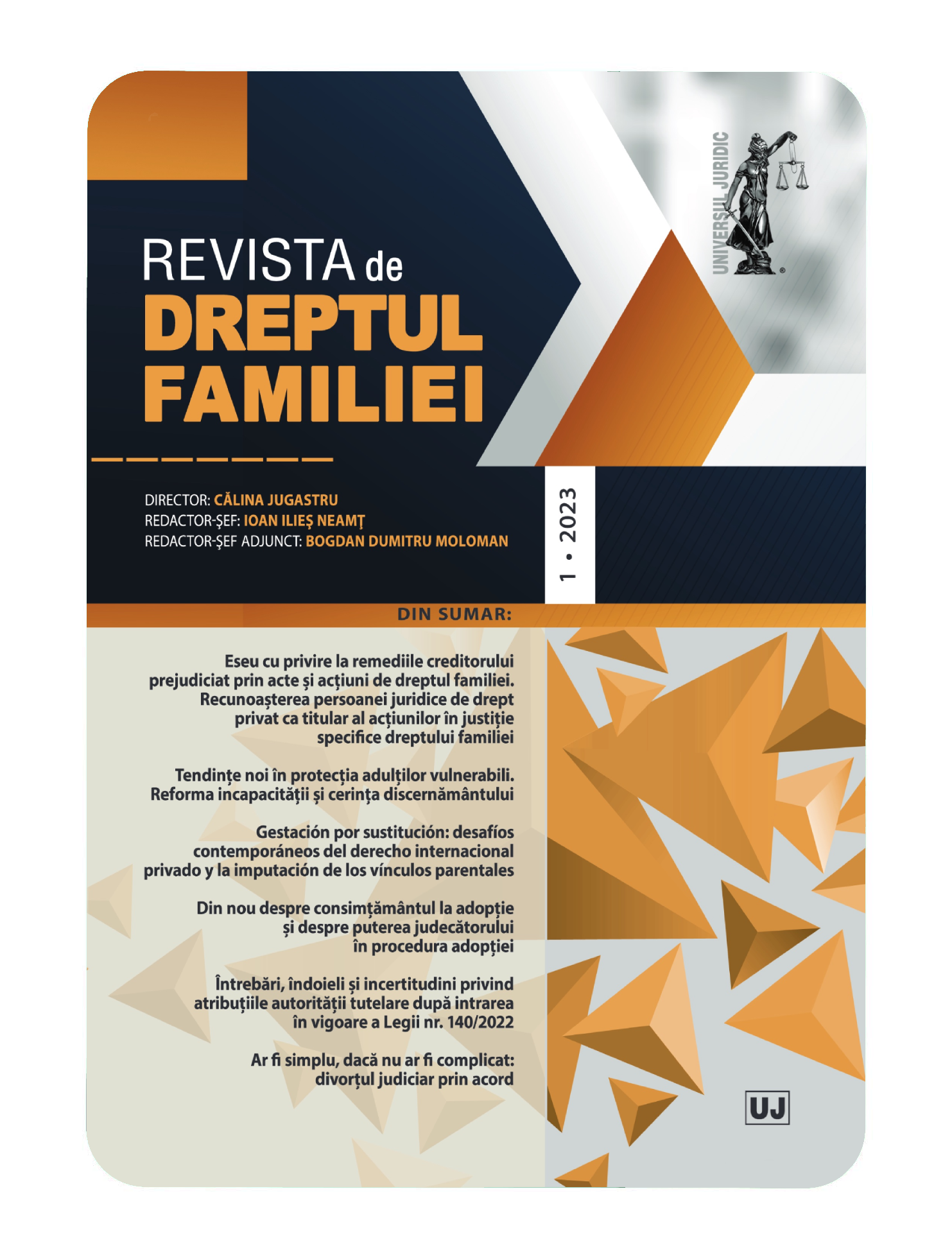The criminal liability of minors under the new Criminal Code
Aspecte referitoare la rãspunderea penalã a minorului în noul Cod penal
Keywords: new Criminal Code; criminal liability; minor; educational measures that deprive of liberty or that do not and are applicable to minors
Criminal liability imposes that sanctions that are applied must correspond with the psychological and physical characteristics of the criminals. Thus, the punitive objective that is sought through the sanction must circumscribe to the goal of educating the subject of the sanction. For this reason, the criminal liability of minors appears to be a sui generis liability. Various perspectives determine the legislator to give juvenile criminals an attenuated criminal treatment. The main reason for the present study is the desire of an intellectual leaning towards a theme that most of the time requires increased attention. Firstly, because juvenile criminals present special features as they are going through a moment of their existence when their psychological and emotional development has not yet reached its peak and this can often cause slippages which can translate into criminal offences. Secondly, a criminal law subject with special characteristics can only have a sanctioning treatment that reflects this, namely a manner of repression with accents of absolute particularity. The main novelty of the New Criminal Code in this regard is the complete removal of punishments for minors that are criminally liable, as now they have a sanctioning regime consisting exclusively of educational measures that can either imply deprivation of liberty (internment in a re-education centre and internment in a detention centre) or not (civic formation stage, surveillance, consignment at the end of the week and daily assistance). The work contains a detailed analysis of the educational measures, together with mentions to the corresponding measure in the old legislation (or the lack thereof), as well as an attempt of quantifying the level of severity that each of the measures implies. As we will see, the Romanian New Criminal Code will maintain itself in the sphere of European legislations that keep a separate sanctioning regime for juvenile criminals, thus differentiating itself from other law systems. However, the Romanian legislator once again shows a certain degree of originality.
More...
